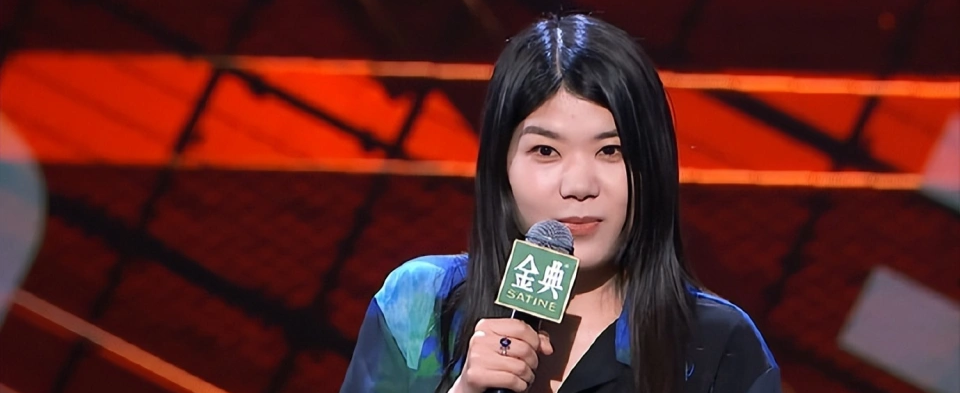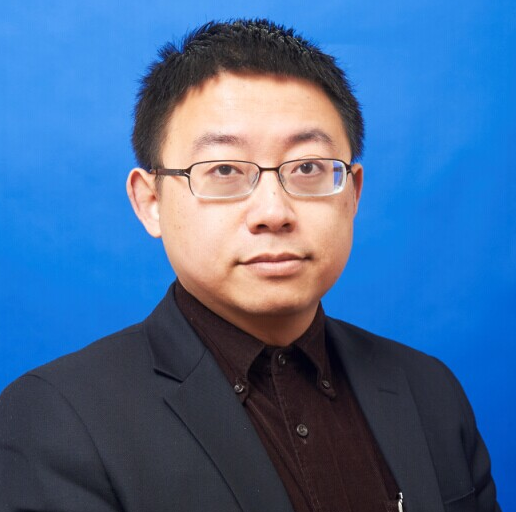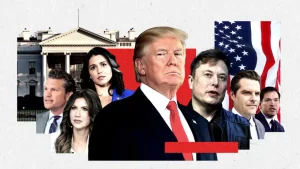How a Stand-Up Comedian Drove China’s Publicly Listed Companies Crazy

As China’s largest consumer festival, “Double Eleven,” approaches, one of the biggest e-commerce platforms, JD.com, finds itself too preoccupied with a public relations crisis to focus on advertising or price wars.
For years, JD.com has been recognized by Chinese male consumers for its focus on home appliances and electronics. Yet it had found itself a recipient of their rage as this year’s “Double Eleven”drew near. JD.com’s invitation to Yang Li, a female stand-up comedian who allegedly upset the male community by her famous comment,“men are so ordinary yet so confident,” for a JD.com marketing event on October 17th has caused some male consumers to lose their composure. And in order to retain the loyalty of these male consumers, JD.com quickly distanced itself from Yang, but in doing so, offended some female consumers.
 Poster of Yang Li participating in a JD.com event.
Poster of Yang Li participating in a JD.com event.
Amidst the chaotic public relation terrain, Chinese netizens identified several noteworthy phenomena.
First, Yang Li seems particularly favored by “male-oriented brands.” Previously, she had participated in promotional activities for Intel, Great Wall Motors, and Shede Liquor, all of which ended due to protests from their male consumers.
Second, JD.com seemed to have “made strides” in gender equality, at least when measured by Western standards.
In 2016, JD.com joined the “Gender Equality Project” initiated by the British Embassy in China.
A 2020 news report indicated that the promotion rates and numbers of non-rank-and file female employees at JD.com surpassed those of their male counterparts.
In 2023, JD.com reported that women made up 46% of its workforce, making it the only Chinese company to enter Bloomberg’s Gender Equality Index (GEI).
In 2024, news revealed that the JD.com board had established an ESG committee with female directors accounting for 43%.
During this public relations crisis, complaints of income cuts were also found on Chinese social media, many of which were believed to have come from rank-and-file deliverymen.
These fragments of information are hinting at one possibility: JD.com and Yang Li are both wedded to the gender equality agenda, but maybe not to each other.
A week has passed since Yang Li’s first appearance at the JD.com event, yet the incident still remains a focal point of public discussion. We find, a Taiwanese media interview of Shen Yi, a professor of international relations at Fudan University and a blogger with five million followers, particularly interesting and deserving of special attention. Here’s how he believes the incident should be deciphered:
Q 1: In the JD.com-Yang Li incident, netizens dug up that JD.com joined the gender equality project initiated by the British Embassy in China back in 2016. Professor, could you analyze what the British Embassy has been up to in China?
Shen Yi: There are a few things to discuss, starting with this gender equality project. Participating in such a project implies that, first, you recognize that there is inequality between genders. Second, you understand that equality should be established between genders. Third, you need to build an effective framework to achieve this equality.
Are these three points wrong? No. From a corporate responsibility perspective, is it wrong for a company like JD.com to promote gender equality? Not really, right?
But what do we see now? We see that Yang Li’s endorsements consistently invite pubic relations problems.
This isn’t the first time Yang Li has encountered issues with her endorsements; she previously endorsed Intel and had problems. Then she endorsed Great Wall Motors and faced backlash. Now, she’s doing the same with JD.com.
Two questions are now directed towards Yang.
First, in her stand-up comedy, Yang Li has crafted an image for herself as a spokesperson for women, critiquing and satirizing those who discriminate against or bully women and highlighting gender inequalities. If that’s the case, why does Yang Li keep partnering with brands that are primarily marketed toward men, where she criticizes their audience?
Second, people are curious whether this could be related to support from the British Embassy or other foreign influences. Let’s not forget, not every day you get to be a spokesperson for Intel, right?
A reasonable assumption is that someone must have recommended her. To be blunt, the boardrooms of those brands clearly preferred her.
 Yang Li
Yang Li
Stand-up comedy, in itself, is a form of offensive art; the audience pays to experience that offense, right? When performing for her audience, Yang Li can say whatever she likes. However, now that she’s promoting JD.com, she’s trying to profit off the very group she offends. It’s like I didn’t pay to see you, but you jump in front of me to show me your act while also promoting material that offends me. Isn’t that forcing those values down my throat?
Thus, one perspective suggests that this continuous hiring of her as a spokesperson isn’t just a singular action; there’s a group or a mindset behind it, intentionally or unintentionally conducting a large-scale experiment of compliance to establish authority.
What is authority? It means that whatever I serve you, you must accept, and it’s not something you like; I’m creating a new taste for you—that’s shaping.
Q 2: This year, a GEI 100 ranking was released, valuing diversity, equity, and inclusion. Many companies on this list are foreign, with Mercedes-Benz ranking first, along with some Chinese companies. China began participating in the ranking last year.
Shen Yi: To be honest, the GEI concept in Western countries essentially developed as a form of penance for their ancestors. In the past, there was racial oppression, extermination of indigenous peoples, and systemic racial discrimination, right? Given that, seeking redemption is only natural. But since China hasn’t gone through the same process and bears no such sins, why should we follow your demands?
I have always disagreed with the term “color revolution”; it should be termed “color counter-revolution.” Revolution has a defined meaning. The formal definition of revolution is replacing an outdated mode of production with a more advanced one; that’s what constitutes a revolution.
 A man rides a bicycle past damaged buildings in the rebel-held Tariq al-Bab neighborhood of Aleppo, Syria, September 26, 2016., September 26, 2016. Abdalrhman Ismail/Reuters
A man rides a bicycle past damaged buildings in the rebel-held Tariq al-Bab neighborhood of Aleppo, Syria, September 26, 2016., September 26, 2016. Abdalrhman Ismail/Reuters
Now, ESG and GEI are practically regressing in practice, turning into a form of rent-seeking behavior. When it comes to adopting GEI values, while companies should seek to provide fair opportunities for various groups to achieve fair outcomes, it shouldn’t be equality for the sake of equality. For example, you shouldn’t allocate jobs 50 to 50 based on societal gender ratios irregardless of the characteristics of the industry in question.
Take JD.com as an example. If you calculate the gender ratio by taking into account all employees from the top to the bottom, what will the result be?
There will undoubtedly be more men in physically demanding jobs. And demanding equal gender recruitment in these roles is inherently misguided.
From a statistical point of view, achieving absolute gender equality at the company level will inevitably require adding more female managers to compensate for the shortage of female workers in lower positions.
But the increase in management cost will lead to corresponding rise in the company’s operational costs, and may result in reduced wages for rank-and-file male workers.
Thus, it not only fails to solve the issue of gender inequality but also undermines the original fairness mechanisms in the market and stigmatizes the pursuit of gender equality itself.
Honestly, gender equality should be a goal everyone strive for, and the starting point for achieving it should be equal pay for equal work.
When did the gender pay gap become a problem again in China? It was during the early reform and opening-up period of the 20th century, coinciding with the reintroduction of Western competitive systems and market competition.
It was when we Chinese started evaluating labor value through a capital lens. For capital, the value of female labor is inherently higher in cost than that of males because females have periods where they are not suitable to work, such as during their biological cycles, pregnancy periods, and nurturing phases.
Between two potential employees-one with these three cycles who cannot provide labor yet requires payment, and another without these cycles-a company will naturally tend to hire the latter or adjust the salary for the first to account for the costs incurred by those cycles. This leads to unequal pay for equal job.
In the course of China’s market reform, many welfare policies for childbirth and child-rearing, such as daycare centers and supportive educational systems, were stripped away to follow market principles, yet insufficient public discussions were conducted to assess the consequences.
Viewing gender equality solely through the lens of political rights falls short of addressing the problem. Instead, it reduces gender equality to mere tools and chips for social mobilization and political agitation.
This approach does not address the root of the problem but creates a self-reinforcing mechanism of interests. As a result, the solution becomes part of the problem, intensifying gender conflicts instead of tackling the issue through a convergence of power from both genders.
Earlier, when “Black Wukong” encountered “Sweet Baby,”“Black Myth: Wukong” was accused of being politically incorrect. No matter how good your game is, I will label it a manifestation of gender inequality. I’ll apply social pressure, and I’ll cyberbully you with the power of capital.
 Sweet Baby Inc provides LGBT+ content consulting and optimization services for game companies. The group ‘Sweet Baby Inc detected’ on the gaming platform Steam has 450,000 followers who express dissatisfaction.
Sweet Baby Inc provides LGBT+ content consulting and optimization services for game companies. The group ‘Sweet Baby Inc detected’ on the gaming platform Steam has 450,000 followers who express dissatisfaction.
Those foreign companies on the GEI list, to be blunt, aren’t performing exceptionally well on gender equality issues; they are merely the first batch of extortion targets.
For the governments of Western countries, a simple question can be raised to expose their hypocrisy: “Hillary Clinton, shouldn’t you change your last name back before lecturing me on gender equality?” What moral high ground dose GEI hold when it fails to recognize this?
Q3: What should we do moving forward? What insights does the JD.com incident provide us?
Shen Yi: I don’t deny that GEI is a good thing; the devil lies in the execution.
I want to make it clear that the current GEI (Gender Equality Index) system is fundamentally flawed. It is based on a mechanical measurement of numbers and has been monopolized by a few non-governmental organizations, becoming a tool for their profit. This situation needs to be improved. These GEI companies themselves need to undergo scrutiny.
Secondly, within the framework of GEI, one of the most heatedly debated topics has been anti-sexual harassment, which has been politicized.
The American MeToo movement was initiated by Hollywood actresses in 2006 and 2007 to prevent directors from sexually assaulting actresses during filming. However, it is widely recognized that the MeToo movement reached its peak in the United States in 2017. Why? Because the Democratic Party used MeToo against Trump, who was known for his crude behavior and locker room talk, with some of his statements about grabbing women being particularly vulgar (original quote: “You know I’m automatically attracted to beautiful — I just start kissing them. It’s like a magnet. Just kiss. I don’t even wait. And when you’re a star, they let you do it. You can do anything. Grab ’em by the p***y. You can do anything.”). The Democrats leveraged MeToo against him, which also involved the abuse of media monopoly.
However, everyone seems to have forgotten how the MeToo movement in the U.S. came to an end. How did it disappear? After 2017, why did this wave suddenly come to a halt?
First, people realized that the primary area affected by MeToo was Hollywood, which is a major financial backer and voter base for the Democratic Party.
Second, when discussions about MeToo arose, the conversation naturally jumps to the common perception of male harassment of women, but in reality there are also instances where female superiors harassed their male subordinates.
Within the U.S. Congress, the loudest advocates of MeToo included a Democratic female representative (Cristina Garcia) who was exposed for sexually harassing her white male subordinate. After that, the movement effectively stopped in the U.S. and then shifted to China.
 Cristina Garcia
Cristina Garcia
In China, when cases of sexual harassment continued to be exposed as being perpetuated by people advocating Western liberal democracy, liberal Chinese writer Liu Yu publicly called for a halt to the movement, stating that MeToo shouldn’t be turned into a public denunciation. The Financial Times even published an article stating that Chinese MeToo would have no future unless it targeted the power structure.
(Editor’s note: We could not find the original text, but our search for clues provided by ChatGPT led us to an article by Deng Yuwen titled “#MeToo China: A movement that can only go so far,” published in March 2018 in the Financial Times.)
Should we really lay all of this out on the table? The end result would be something like this:
One basic conclusion can be drawn: the ESG and the GEI framework promoted by Western countries have completely deviated from their original purpose. They have been seriously distorted and have become tools for a small elite to seek rents, establish rents, disrupt fair competition, and ultimately backfire on themselves in a twisted game.
The widespread backlash against Yang Li’s endorsement is merely an inevitable result of this distortion. Its emergence is both random and inevitable. If it doesn’t appear here, it will show up elsewhere.
In Yang Li’s incident, the same arrogance shown by Hillary and Harris towards American voters can be found here. Those who oppose me are ignorant; I represent the correct direction of historical progress, and you should just follow me. To be honest, this kind of attitude not only stigmatizes the movement but also stigmatizes women.
Because the traits displayed by people like Yangli reinforce negative stereotypes that are disadvantageous to women, this is very detrimental to gender equality.
By exploiting women, these individuals exhibit thinking similar to that of those in Israel who exploit the history and sacrifices of six million Holocaust victims. As a result, backlash has arisen, with some people beginning to argue that the treatment of Jews during WWII might have been justified, given the current treatment of Palestinians..
If the exploitation of gender equality agenda continues, it won’t be long before someone directly stigmatizes women, arguing that women should be banned from certain roles. This is not just a problem of increasing opposition; it will lead to backlash.
No one survives in this backlash; no one genuinely benefits from it. I won’t go into what the British and American governments are implanting through this, nor will I discuss the gender studies center at the University of Michigan and how they use this for political infiltration. All of these are secondary issues compared to the social destruction and backlash that current GEI practices may bring. It could devour order and lead to ultimate societal chaos.




